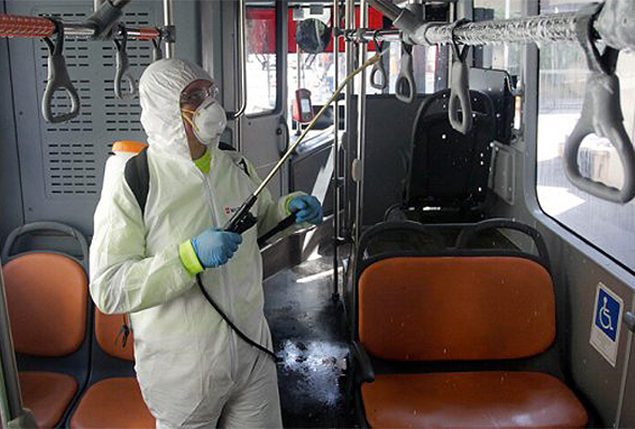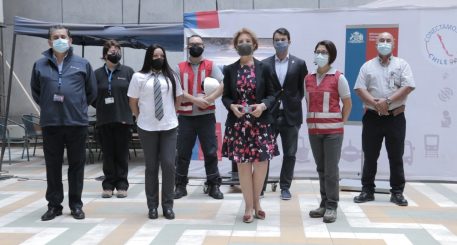Public transport takes preventive measures in the face of the covid-19 pandemic

Since 12 March, trades have been issued for companies in public transport to take preventive measures against the high risk of contagion of the disease.
Since the beginning of March, and in the face of the imminent arrival of COVID-19 in Chile, the Metropolitan Public Transport Board has issued 33 trades in order for companies that make up public transport to take prevention measures against high risk of contagion of the disease.
The first trade, dated 12 March 2020, requested companies to strictly follow the recommendations established by the health authority in order to prevent contagion. In this way, companies were first asked to preemptively send home all those workers who belonged to the risk groups, either by age or because they had chronic diseases. In addition, they were asked to extreme sanitary measures in courtyards, terminals and buses, and to have alcohol gel and safety implements to prevent contagion.
“Given, the increase in cases in the city of Santiago, the use of the second and third doors of buses that do not have a segregated cabin was instructed.”
It was further instructed that, in case of detecting a worker with symptoms of possible contagion, it was immediately quarantined and referred to a health centre for the respective examination.
Over the course of the days, these measures were coupled with the need to sanitize buses and workplaces with products specially designed for this type of health crisis.
In conjunction with them, a protocol was created to report, both internally and externally, cases that would positive to COVID-19. In this way, an exhaustive control of the number of cases is carried out and workers can have the information in a timely and truthful manner.
Since, the increase in cases in the city of Santiago, the use of the second and third doors of buses that do not have a segregated cabin was instructed so that passengers can maintain proper distance with the driver and avoid possible contagions.
As a way to protect public transport workers, and through the efforts of the MTM and the support of the Ministry of Health, influenza vaccination was enabled for all drivers of the system. Nearly 40% of drivers have been immunized in the first week.
“A campaign is being implemented for users to safeguard preventive measures during the trip including proper estating.”
To ensure continuity of service for users, other trades were issued without specifying that in cases of curfew or quarantine, workers of the companies may transit with their Credential and Identity Card. This has allowed the surface transport service from 05:30.
In this same line, changes were made to the operating program that allowed on the one hand to reduce frequency and improve regularity, all in order to improve supply and allow users within buses to maintain the distance recommended by the healthcare authority.
In addition, a campaign is being implemented for users to safeguard preventive measures during the trip including proper estating.
In addition to the measures described above, from the DTPM, through the maintenance team, the sanitization and cleaning of buses in terminals is constantly being fully audited to ensure a proper disinfection of the fleet and to provide peace of mind to our users who must occupy public transport in the midst of this contingency.
Prevention measures were also officiated requesting the adoption of the measures and their respective report to other public transport companies such as Indra, AFT, Sonda, Cargo Network, Metro and Tren Central.
These measures will continue to be implemented as long as authority decrees it as a necessity that we must face as a country. To the extent required, we will be taking further steps to ensure the safety of our drivers and people using public transport.




